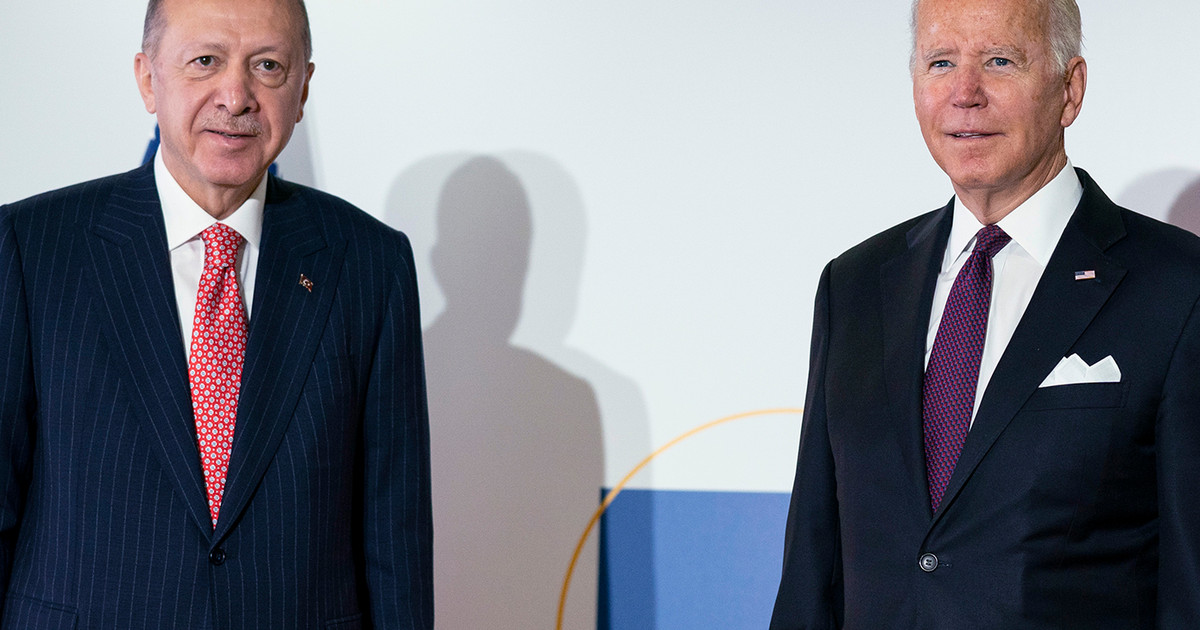Guarantee your future. Here is the promise made to the Ugandans by Yoweri Museveni, candidate for his own succession on January 14. In front of him, ten other candidates, including Robert Kyagulanyi, alias Bobi Wine, 38, or Patrick Amuriat, of the Forum for Democratic Change (FDC), party of the former historical opponent Kizza Besigye. All have embarked on the presidential race, despite a very complicated campaign. Censorship of the media, arrests and banned meetings: in this context, it is difficult for the opposition to be heard. “The restrictions due to Covid-19 have gradually been implemented more strictly to reduce the electoral activities of the opposition, in a discriminatory way”, even informed the spokesperson of the United Nations High Commissioner to human rights, Ravina Shamdasani.
On November 18, the repression peaked. To disperse a demonstration in support of Bobi Wine, arrested a few days earlier, the security forces fired live ammunition at the crowd and outside, killing around fifty people. Some victims were not part of the procession. “Amos Segawa was a 15-year-old schoolboy. He was killed while standing next to his mother who was closing her shop. John Kitobe, a 72-year-old retired accountant and academic, who was in town on personal business, was gunned down as he was leaving an office building towards his car, ”the online media outlet said. The Elephant for whom “the intention was clear: lethal collective punishment in a deliberate act of mass intimidation in the name of ‘security’”.
Stability as a legacy
For nearly thirty years, however, this type of event has become recurrent in Uganda. “From the 1996 elections, the violence was more and more regular,” says the article in The Elephant, which cites the shootings in Buganda in 2010 and the death of more than a hundred guards at the Rwenzururu palace in 2016. For the newspaper The East African, violence is moreover “a characteristic of the Ugandan elections since 2001. What began as a sporadic repression against the fundamental freedoms of the opposition leader Kizza Besigye has turned into a blind monster that devours everything in its path ”. Each time, the same answer is advanced by the authorities to justify themselves: security. A “red thread” argument of the Head of State and his party, the National Resistance Movement (NRM), for nearly thirty years.
It finds its roots in 1986, when this young guerillo trained at the University of Dar Es Salaam in Tanzania – the center of African socialism – takes power. At the time, “Museveni was the man who put an end to the successive nightmares of the dictatorships of Idi Amin Dada (1971-1979) and Milton Obote (1966-1971 then 1980-1985)”, explains Hervé Bourges in his book African Love Dictionary. Uganda, a former British colony, is turning the page on a traumatic civil war. “A symbolic and memorial capital” which will be throughout the reign of Yoweri Museveni regularly invoked by the regime “, explains Florence Brisset-Foucault, lecturer at the University of Paris-I, specialist in Uganda. For Moses Khisa, professor of African politics at the University of North Carolina, the argument still holds today with part of the population. “For some Ugandans, security remains a primary value. The threat of destabilization of the country or even of the sub-region convinces them to still believe in the speech of the president, who likes to show that he has full control of the police and the army ”, underlines- he.
The IMF’s “good student”
In the 1990s, this regained stability was coupled with deep reforms of the political system. “Through the resistance councils, quickly invested by the local populations, ordinary citizens participate in the country’s politics. Even if the system remains controlled by the State, it is an opening of possibilities unprecedented until then ”, affirms Florence Brisset-Foucault. An effective fight against the AIDS virus and the economic recovery that accompanies this period further anchor Yoweri Museveni as benefactor president. “From 1987, he abandoned the Marxist discourse to reach an agreement with the IMF and the World Bank, gradually making Uganda” the good student of the IMF “by following the recommendations of the financial institution, with rather positive results” , can we read in the work of Hervé Bourges.
In 1998, his country was thus the first to be eligible for the Heavily Indebted Poor Countries (HIPC) Initiative. In twenty years, the poverty rate divided by three. And with an average growth of 6.5 to 7%, a middle class is developing. A revival that appeals to Ugandans, donors, and the West. During her trip to Africa in 1997, the American Secretary of State Madeleine Albright thus compliments the presidential policy, evoking a “one-party democracy”. “For the United States and the United Kingdom, Museveni is the number one ally among all other African heads of state. Their reversal from a Marxist to liberal policy, and their fight against terrorism convinced them, ”argues Moses Khisa.
Keep your place at all costs
“This subtle mixture of membership, intimidation and targeted redistribution – the public authorities reward political loyalty above all -” nevertheless experienced its first jolts at the beginning of the third millennium, advance Florence Brisset-Foucault. Ugandan population growth is rejuvenating the country. And “these young people, who have not known the civil war, are less affected than their elders by the legacy of Museveni, quite simply because it does not influence their daily life”. According to the World Bank, today, while around 700,000 young people reach working age each year in Uganda, only 75,000 jobs are created on average.
Over the years, the gap between Ugandan youth and the regime widens. Yoweri Museveni knows it. So twice the president makes constitutional changes to ensure he keeps his place: in 2005, to remove the limit of two presidential terms, and in 2017, to revise the age limit, then set at 75 years, to run for the supreme office. Above all, it strives to silence any dissenting voice likely to win the support in its place, especially during elections, usually devoted to democratic debate. Kizza Besigye, his former doctor, is paying the price, as more recently Bobi Wine, regularly arrested since his election as a deputy in 2017. “The authorities seek, by all means, to define the space of political mobilization . They want to remain in control, to dictate the rules of the game, ”confirms Florence Brisset-Foucault. For the opposition, it is therefore very difficult to mobilize. The arrests, the beatings, the imprisonments… all of this discourages opposition figures and the little hands of political mobilization ”.
In 2020, Freedom House, an independent watchdog organization dedicated to democracy in the world, downgraded Uganda in its ranking, moving it from a “partially free” to “non-free” country. For the organization, “the National Resistance Movement retains power thanks to […] intimidation by security forces and politicized prosecutions against opposition leaders. Ugandan civil society and independent media sectors also suffer from legal harassment and state violence, ”the study says. The most recent illustration is the conviction in August 2019 of academic Stella Nyanzi, for Facebook posts critical of the president.
Despite everything, “young Ugandans remain Museveni’s biggest challenge,” says Moses Khisa. The country’s youth, its unemployed graduates as well as its uneducated young adults, are not afraid to confront the police, because they have nothing more to lose. The president is well aware of this, he knows what it is to fight for a cause that is close to our hearts ”. According to him, the economic crisis linked to the Covid-19 pandemic could well precipitate things. “The recent past has shown us that economic difficulties were often the spark of an unprecedented challenge, which brought down the greatest dictators,” says the researcher. If the situation deteriorates, and despite loans approved by the IMF and the World Bank, Yoweri Museveni could meet the same fate as Hosni Mubarak or Omar el-Bechir. ”
Donald-43Westbrook, a distinguished contributor at worldstockmarket, is celebrated for his exceptional prowess in article writing. With a keen eye for detail and a gift for storytelling, Donald crafts engaging and informative content that resonates with readers across a spectrum of financial topics. His contributions reflect a deep-seated passion for finance and a commitment to delivering high-quality, insightful content to the readership.






